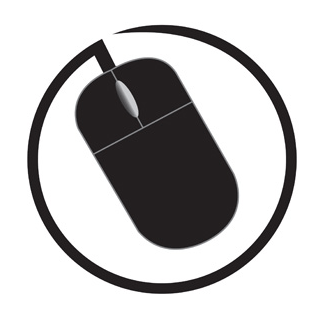Want a sharper memory without slogging through dense theory? Need to recall policies, names, ideas, and facts at a moment’s notice? Here, you will find 15 practical memory hacks for professionals and students. These tips draw on the idea of neuroplasticity, your brain’s ability to form new connections. Used consistently, these tips will help you think faster, remember more, and feel more in control at work and in life.
Why a Sharp Memory Matters Today
A strong memory gives you an edge. It saves time, reduces mistakes, and boosts confidence. Whether you need to remember a client’s name or present data without notes, these habits train your brain to perform under pressure.
Having the advantage of technology at our fingertips is also our downfall. GPS, predictive text, google search suggestions – it has all made us a bit lazier. By doing regular memory exercises, you can boost your brain power and stand out from the crowd. Where others are reliant on their devices, you will be able to retrieve answers on the spot, unaided.
A sharp memory pays off when recalling facts for presentations, remembering people/positions at events, and tracking tasks across multiple projects. And let’s not forget the personal touch! Remembering and using a client’s name shows that you value them—it helps build trust and makes your connection feel authentic.
Unlocking Neuroplasticity: Your Brain’s Superpower
Your brain adapts to whatever you consistently ask it to do. The more you practise recall and focused attention, the stronger your brain circuits become. That is the heart of these memory hacks for professionals – training your brain to perform better through repetition and awareness.
Neuroplasticity is your brain’s amazing ability to change and grow new neural connections. Just like building muscle through exercise, your brain strengthens with use and practice, allowing you to learn faster, think more clearly, and retain more information over time.
So, let’s dive into 15 amazing memory hacks that will get your brain transforming…
Memory Hacks for Professionals
1 Warm Up Your Brain Like a Workout
Treat your brain like a muscle. Prime it before you need it. A mental warm-up can get neurons firing before heavy mental work. Think of it like an athlete doing their stretches before starting a race. Starting your day with small challenges can shift your brain from idle to active mode, becoming alert for the day. You can do this by doing a quick crossword or sudoku, or workout or even a brisk walk.
These small actions increase blood flow which oxygenates your brain, therefore improving overall cognitive ability. The result? You absorb information faster and retain it longer. Warming up your brain daily also creates a positive ritual for productivity.
2 Cut Back on Technology
Technology is a fantastic tool, but over-reliance weakens our memory muscles. By constantly outsourcing our recall needs, we rob our brains of the challenges it needs to stay sharp.
To strengthen recall, start small. Try remembering phone numbers, navigating without GPS, or solving a maths problem in your head or on paper. Each small act of resistance will help retrain your brain to work harder. It might feel uncomfortable at first, but like exercise, the effort will pay off in time.
3 Pick Up a New Skill to Keep Your Brain Active
Novelty sparks growth and keeps your mind curious. Whether it’s a new language, instrument, or recipe, learning something new stimulates the brain’s reward system and encourages neuroplasticity.
When you challenge yourself with new skills, the brain must adapt to unfamiliar situations, and this improves memory and creativity. The key is consistency, not perfection. Even 15 minutes of learning each day is enough to keep your brain curious and engaged, promoting long-term cognitive improvement.
4 Repeat and Retrieve to Reinforce Memories
Repetition plus recall is a simple, proven combo. Each time you retrieve information from memory, you strengthen the neural pathways that store it. This is why actors rehearse lines repeatedly — retrieval cements learning.
Try spacing out your practice sessions instead of cramming. Review notes after a day, a week, and then again, a month later. Spacing it out trains your brain to recall information better, making learning easier and longer lasting.
5 Master Acronyms, Abbreviations, and Mnemonics
Turn lists into something your brain can store. Mnemonics work because your brain loves patterns and associations. Turning information into catchy acronyms or vivid mental images transforms dry data into something memorable. Think of ROYGBIV — a simple name that helps millions remember the colours of the rainbow.
You can apply the same idea to your daily life. Turn meeting points into acronyms, create rhymes for processes, or link names to colourful images. These playful tricks lighten cognitive load and make recall feel effortless.
6 Chunk Information into Manageable Groups
When information feels overwhelming, chunk it. Breaking long strings of data into smaller, meaningful sections makes it easier to process and recall. This is why phone numbers, credit cards, and even sentences are grouped.
Chunking works because it leverages short-term memory limits. By grouping related items, your brain encodes them as one unit instead of many. Practise chunking with facts, names, or figures to make learning smoother and recall faster.
7 Make Reading a Daily Habit
Reading is one of the most powerful brain workouts you can do. As Jim Kwik says, “readers are leaders.” Regular reading builds comprehension, vocabulary, and memory — but it also expands empathy and focus.
Set aside just 10 to 15 minutes a day to read something meaningful. Over time, this habit compounds, boosting cognitive flexibility and reducing mental fatigue. The consistency of reading, more than the duration, gains long-term brain benefits.
8 Engage All Your Senses for Deeper Retention
Memory sticks when more of your brain joins in. The more senses you involve when learning, the deeper the memory imprint. This is because sensory input activates multiple areas of the brain, strengthening neural connections.
Next time you’re studying or training, link information with colour, sound, or even smell. For example, use coloured notes, textured flashcards, or scent cues. Associating learning with sensory experiences enhances recall and makes studying more immersive and effective.
9 Cross-Train Your Brain for Full Engagement
Just as your body thrives on varied workouts, your brain benefits from diverse mental activities. Mixing physical, mental, and creative challenges keeps your mind adaptable and balanced.
Try alternating between puzzles, creative writing, and movement like yoga or dancing. This variety prevents mental stagnation, enhances coordination between different brain regions, and helps maintain focus throughout the day. Cross-training your brain ensures it stays resilient under pressure.
10 Build a Mind Palace for Visual Recall
The Mind Palace technique taps into your brain’s spatial memory — one of the most powerful memory systems you have. Imagine a familiar place, like your home, and assign vivid images to specific locations that represent information you want to remember.
For example, you might picture a red apple on your couch to recall “nutrition.” Walking through this space in your mind later triggers the memories tied to those locations. The method turns abstract ideas into concrete visuals, making recall vivid, fast, and enjoyable.
Steps
- Pick a familiar place
- Choose a route through it
- Place bold images at each stop
- Walk the route in your mind to recall
11 Stay Organised to Avoid Brain Overload
Less clutter means more focus. Mental clutter can often mirror physical clutter. So, a disorganised workspace can drain your focus, making it harder to remember details. Create simple systems to keep your space tidy – and this goes for digital files too. When you are in a clear environment, your surroundings are calm, and you mind naturally follows suit.
12 Play Brain Games to Sharpen Skills
Challenge your thinking in fun ways. Activities like chess, logic puzzles, or strategy games challenge your memory, planning, and focus. Incorporate short sessions of brain games into your week. Rotating between different games keeps things fresh and ensures you are training multiple areas of cognition.
13 Fuel Your Brain with the Right Foods
What you eat directly affects how well your brain performs. Nutrients like omega-3s, antioxidants, and B vitamins protect neurons and support long-term cognitive health.
Incorporate foods such as salmon, blueberries, and broccoli into your meals. These superfoods boost energy, concentration, and memory retention. Over time, a brain-friendly diet becomes one of your strongest tools for sustained mental performance.
14 Manage Stress to Protect Your Memory
Less stress, better recall. Chronic stress disrupts concentration and recall and shrinks regions of the brain that are memory-related. Therefore, managing stress is essential for a healthy, high-functioning mind.
Find relaxation methods that suit you — yoga, swimming, strength training, or simply walking in nature. Consistency matters more than intensity. Regular stress relief allows your brain to reset, improving clarity, creativity, and memory retention.
10 Simple Ways to Relieve Stress
Change Your Physical State to Boost Mood & Productivity – Without Leaving Your Desk
15 Prioritise Sleep for Memory Consolidation
Sleep isn’t just rest; it’s where memory magic happens. During deep sleep, your brain consolidates new information, turning short-term experiences into long-term knowledge.
Instead of relying on naps after late nights, maintain a consistent sleep schedule. Quality sleep enhances focus, learning, and decision-making. Think of it as your brain’s nightly recharge — this is a non-negotiable habit for anyone serious about brain performance.
Learn from Memory Experts Like Jim Kwik
Jim Kwik, often called a memory maestro, teaches practical methods for learning faster and remembering more. His insights focus on using your brain efficiently, not stuffing it with more data.
After suffering a childhood brain injury that affected his ability to learn, he devoted bis life to understanding how the brain works and how to unlock its full potential. He is now a worldwide leading coach in memory improvement, speed reading, and accelerated learning. Here, you can discover a treasure trove of his teachings.
Practice for Lasting Results
Great memory is built, not gifted. Mix mental workouts, smart strategies, healthy habits, and rest. Over time your brain responds with better focus and recall. These memory hacks for professionals will improve memory and support a healthier more balanced life. Your brain works best when the whole body is looked after.
Remember – these are no overnight solutions. Practice and consistency will pay off.
Pick one hack to start today. Then add another next week. Small steps lead to big gains.
Got a trick that helps you remember names or numbers? Share it with us so others can try it too!

